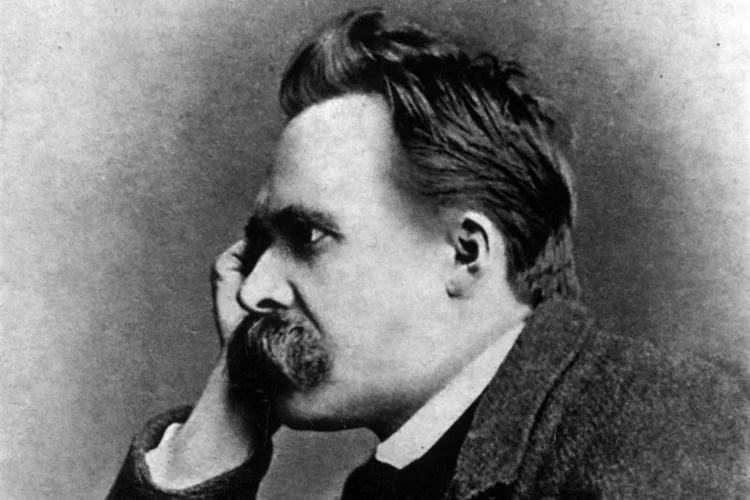How To Harness Dopamine - Issue 33 - 30th October 2022
So how do we find meaning in an increasingly meaningless and distracting world? Fortunately, there are multiple antidotes, the majority of which involve travelling back to a time in which social media, iPhones and targeted algorithmic advertising were still to be introduced into our lives. A world in which silence was prevalent, mental space was provided in abundance and our brains functioned more clearly with the absence of constant, fabricated and digital distractions. We must sacrifice our modernity. As a species we have spearheaded technological progress at such speeds with such impeccable advancement that we forgot the minor question of what it was all for. We never questioned the implications of such advancement and unfortunately theconsequences are rearing their ugly heads in the form of deteriorating mental health, increases in suicide, digital addictions, polarisation and more. Sometimes the answer to such complex issues is the simplest one: reverse theprogress. I’m not suggesting we get rid of our smartphones and technology and start from scratch, just that we take time without them. The cure to our diseased modernity is to take a break from it.
The world now offers a full complement of digital drugs that didn’t exist before, or if they did exist, they now exist on digital platforms that have exponentially increased their potency and availability. These include online pornography, gambling and video games, to name a few - Dr Anna Lembke
These digital platforms offer fabricated and exaggerated forms of natural reality so no wonder we are all hooked on them: why would we want natural reality when we can inject, watch, eat, drink, scroll or smoke our way towards significant and unnatural spikes in dopamine? The issues arise when that dopamine starts to fall as Dr Anna Lembke, an addiction psychiatrist, outlines in her book Dopamine Nation. We all have a dopamine ‘baseline’ which is thenormal levels of dopamine we experience in normal waking life. When we experience pleasure, dopamine rises. Dopamine is a neurotransmitter that is among the most significant neurotransmitters that govern reward-processing and it may even play a larger role in the motivation to get a reward than thereceiving of the reward itself (2). Dopamine is also used to measure the addictive potential of a drug, behaviour or activity as in the more dopamine that is released in the brain’s reward pathway (“a brain circuit that links the ventral regimental area, the nucleus accumbens, and the prefrontal cortex”) and the quicker the drug or behaviour releases dopamine, the more addictive it is (2).
Another important and relevant neurological discovery is that pain and pleasure are processed in overlapping brain areas and therefore function via the opponent-process mechanism (2). Lembke usefully illustrates this discovery via the use of the pleasure vs pain balance. During normal waking life the balance is steady. When we experience pleasure, it tips towards pleasure and when we experience pain, it tips towards pain. Although, the balance wants to remain balanced, therefore when we feel pleasure thebalance attempts to tip back towards equilibrium. However, in some cases, thebalance doesn’t just tip back to equilibrium, is tips to the opposite side of pain. “Any prolonged or repeated departures from hedonic or affective neutrality…have a cost” (1). In other words, there will be a equal and opposite reaction to the pleasure or pain felt. This is why once we have eaten a piece of chocolate, we crave more. We felt pleasure from the taste, then the balance tipped towards pain making us want more. Now imagine this when we experience an activity or behaviour that spikes dopamine even more so such as through drugs. A heroin user injects heroin, experiences intense pleasure then as the drug wears off intense pain leading to further consumption, leading to addiction. The same can be applied to addictive or compulsive behaviours that we accept or encourage in Western societies: caffeine, social media, alcohol and pornography.
The answer is to, at the very least, take a break from behaviours that unnaturally spike dopamine and introduce or partake in activities that would have spiked our hunter-gather ancestor’s dopamine: exercise, being in nature, eating healthy, whole foods etc. We must become aware of our own addictive or compulsive behaviours that tip the balance towards pleasure in fabricated ways, otherwise we risk unnecessary pain in normal life, with the only two antidotes being consuming your harmful drug or behaviour of choice or abstinence. Therefore, becoming aware early is the best chance we have of loosening the grip that modernity has on all of us.
Keep On Struggling
Gregor
Documentary Series I’m Enjoying - Song Exploder
“Get inspired as musicians dig deep into the creative process of songwriting and reveal their intimate thoughts in a series based on the hit podcast.” This Netflix series, via interviews, examines a musician or band’s song and provides an interesting insight into creative processes.
Watch the trailer below.
Habit I’ve Formed - Short Runs
Recently, I’ve been experimenting with working out everyday via either runs, HIIT workouts or strength training. On days when I work eight hours, I’ve started to go for a short 2.5km run afterwards. These turn my brain off from the stresses of the day, burn a few extra calories and spike my dopamine naturally. Now that I’ve formed this habit, I feel more awake during the day and more accomplished by the end of it.
Philosophical Theory Tightly Linked to This Newsletter - Existentialism
I recently dove deep into the pool of Existentialism and found the theory to be incredibly complimentary as well as similar to the content of this newsletter. The name was self-described by Jean-Paul Sartre and popularised in the 1940s and 50s. Friedrich Nietzsche (Pictured) was seen as one of the precursors to the movement and theories in the 19th century. ““Existentialism”, therefore, may be defined as the philosophical theory which holds that a further set of categories, governed by the norm of authenticity, is necessary to grasp human existence” (3). I view Existentialism from the lens of the human condition, in that the human condition is naturally anxious, full of dread regarding such phenomena as mortality and suffering and therefore Existentialism is a viewpoint aimed at accepting this whilst also finding meaning and purpose in an objectively meaningless world. Therefore the embrace of voluntary struggleis where that meaning is to be found.
Find out more about Existentialism below.
Quote to Ponder
I prefer to be true to myself, even at the hazard of incurring theridicule of others, rather than to be false, and to incur my own abhorrence - Frederick Douglass
References
1) An Opponent Process Theory of Motivation by Richard Solomon & John Corbit
2) Dopamine Nation by Dr Anna Lembke
3) Song Exploder Image & Quote - Netflix
4) Stanford Encyclopaedia of Philosophy





